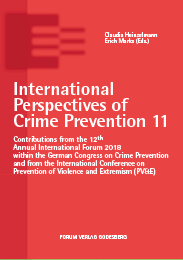Polarisation and radicalisation in European societies
Dr. Triantafyllos Karatrantos
Center for Security Studies (KEMEA)
The refugee crisis poses a number of challenges for the EU. One, in particular, is in relation to its impact on polarisation, radicalisation and extremism. The terrorist attacks in Paris-on November 2015 and the sexual assaults in Cologne-on January 2016 are the two trigger events that brings polarisation as main outcome of the refugee crisis. In this new landscape migration raises at the top of the security agenda perceived as a threat to national and international security, mainly connected with the islamist terrorism. Shift in the political landscape. Polarisation is clearer on the political landscape where populist and far-right groups in Europe have sharpened their rhetoric, using tougher, more enforcement-laden language. Furthermore, we have an important escalation of right- wing extremism with violent far-right militias and gangs targeting immigrants. In this deeply polarized environment we have numerous tensions and even use of violence as the outcome of rioting.The aim of this paper is to explore the dynamics of polarisation in the European societies as an outcome of the refugee crisis and also to highlight the risk from the potential radicalisation of refugees’ diaspora, since rising social tensions between communities have the potential to generate secondary conflict in host countries and possible participation in radical collective action and crime.
| Extract from the book (English, PDF) |


